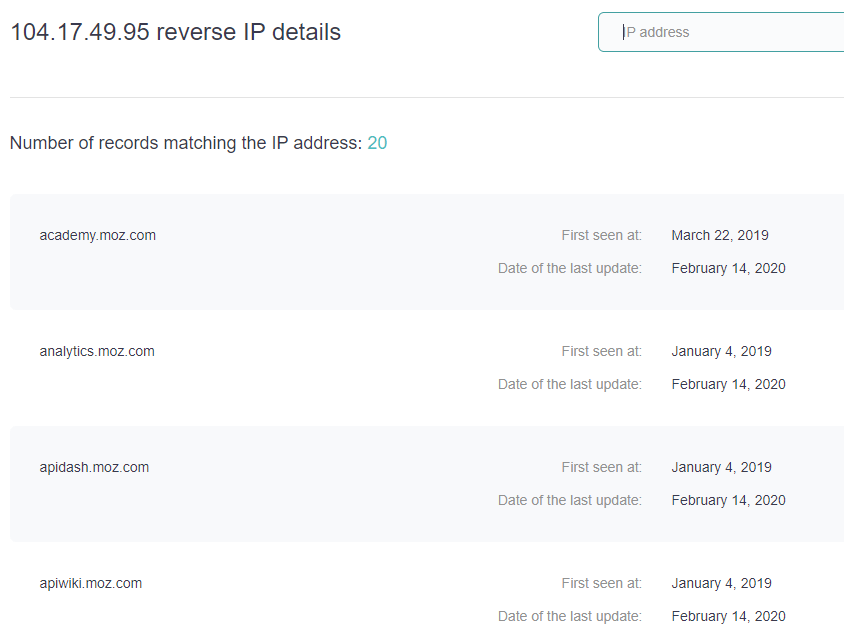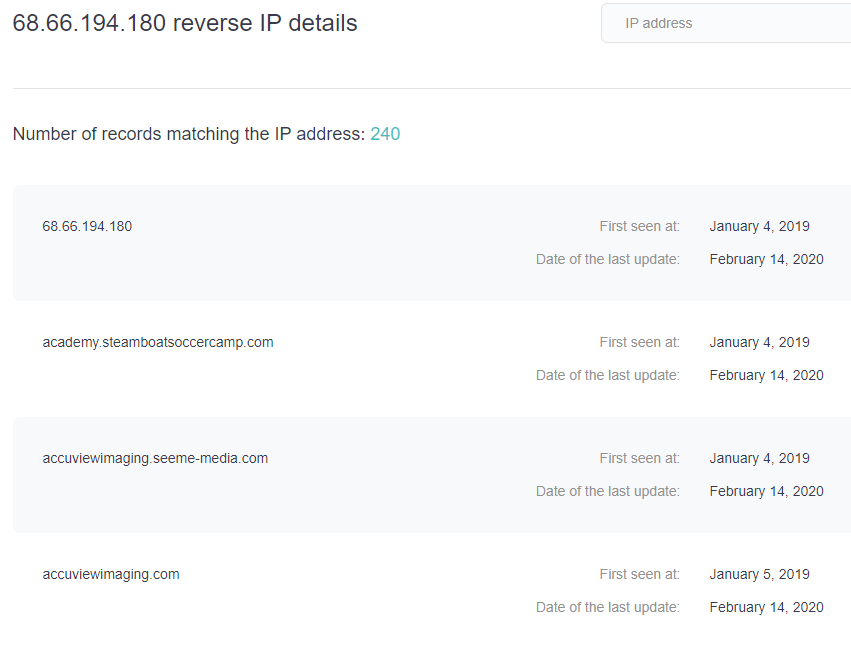Web Hosting Infrastructure and SEO: 3 Factors That Reverse IP Lookup Can Help Improve

Landing on the first page of search engine results is critical for any company operating online, especially given that 75% of Internet users don’t bother to check succeeding pages when querying information. This calls for great SEO, but SEO processes can be tricky as there are multiple parameters to consider. One of these parameters is your web hosting infrastructure, which can become more transparent with a tool such as Reverse IP Lookup.
In particular, Reverse IP Lookup helps users avoid using oversubscribed IP addresses. Oversubscription could affect a website’s standing, speed, and accessibility, three factors that can make or break SEO efforts.
3 SEO Factors Affected By Your Web Hosting Infrastructure
Most website owners focus on creating the most keyword-focused content plans, improving backlinking strategies, and enhancing on-page SEO optimization, among other considerations. However, they may not take web hosting very seriously so long as their websites remain live and accessible. Little do they know that their web hosting provider choice could affect the effectiveness of their SEO campaigns.
Google, for one, puts great emphasis on user experience (UX). The better a website’s UX is, the higher its ranking would be. Of course, the Google algorithm isn’t that straightforward as it takes hundreds of factors into consideration. But all these point to one goal—to encourage websites to provide the best UX. UX is affected by several things, some of which are in turn affected by a site owner’s choice in web hosts. These include:
1. Website Loading Speed
Website visitors won’t wait for a slow site to load. They would likely close the session and look for another website that loads faster. When this happens, it tells search engines that your website is not well-liked, and then it won’t rank well. In fact, Google Chrome announced its plan to identify and label sites according to their speed.
One reason why your website loads slowly despite implementing speed optimization strategies could be because your web hosting provider may have you (and others) oversubscribed. Oversubscription is common in a shared hosting environment where the provider sells portions of its resources to different websites for cost-sharing purposes—the more sites they host, the higher the income for web hosting providers. However, oversubscription causes websites to slow down as resources get spread among so many users, as a result of which the server can’t handle the load well.
Reverse IP Lookup can help website owners check for signs of oversubscription. Given the IP address of your domain, you can see how many domains it hosts. For instance, we ran 104[.]17[.]49[.]95, the IP address of moz[.]com, on Reverse IP Lookup, and found 20 records, all of which belong to Moz. We chose this website as it is one of the top results when you search for SEO-related topics.

To compare, we looked for a website found on the 10th page of a SERP when we searched for “What is SEO?” We found seeme-media[.]com whose IP address is 68[.]66[.]194[.]180. We then ran this IP on Reverse IP Lookup and found 240 different domains hosted on it. Remember that Moz, which ranked 2nd for the same search phrase, only shared the hosting with 20 other records, and even then, it owned all of the sites.

While there could be several other reasons why the SEO article of seeme-media[.]com is on the 10th SERP, the number of domains hosted on its IP could have affected its ranking, too, since it could have slowed its website down.
2. Website Uptime or Accessibility
The accessibility of your website also affects UX and, therefore, SEO ranking. A website that suffers from more downtime than uptime is bound to rank low in SERPs.
Oversubscription may also make websites inaccessible, so make sure that you are not sharing your IP with too many sites. Again, you can use Reverse IP Lookup to know the number of domains that use your same IP address.
3. Web Host Security and Reputation
Web security is a topic that warrants a long and separate post, but when it comes to web hosting, the provider you choose is quite crucial. You have to make sure that the provider enables the use of the Secure File Transfer Protocol (SFTP) and Secure Socket Layer (SSL) certificates, among other things.
For your website’s security and reputation, it’s also best to check the reputability of the domains returned by Reverse IP Lookup. That way, you would know if your IP address hosts any malicious domains, which could also affect your website reputation as there are organizations that employ IP-level blacklisting.
---
Even the best SEO campaigns will fail if website owners and SEO professionals fail to scrutinize their web hosts. Web hosting oversubscription could cause websites to load slowly or become inaccessible at times. These would ultimately affect UX, which is a crucial SEO metric. Also, being hosted on the same IP address as malicious domains could affect your website’s reputation, leading you to get blacklisted as well.
With Reverse IP Lookup, you can check for oversubscription and also dig deeper into the reputations of other domains hosted on the same IP address.




































